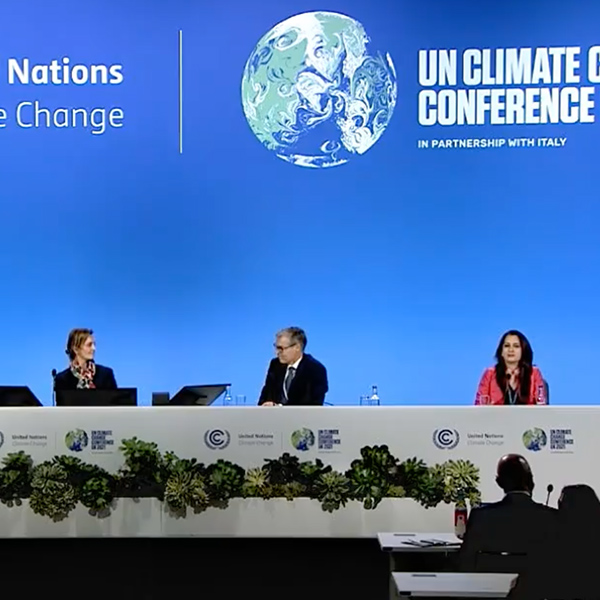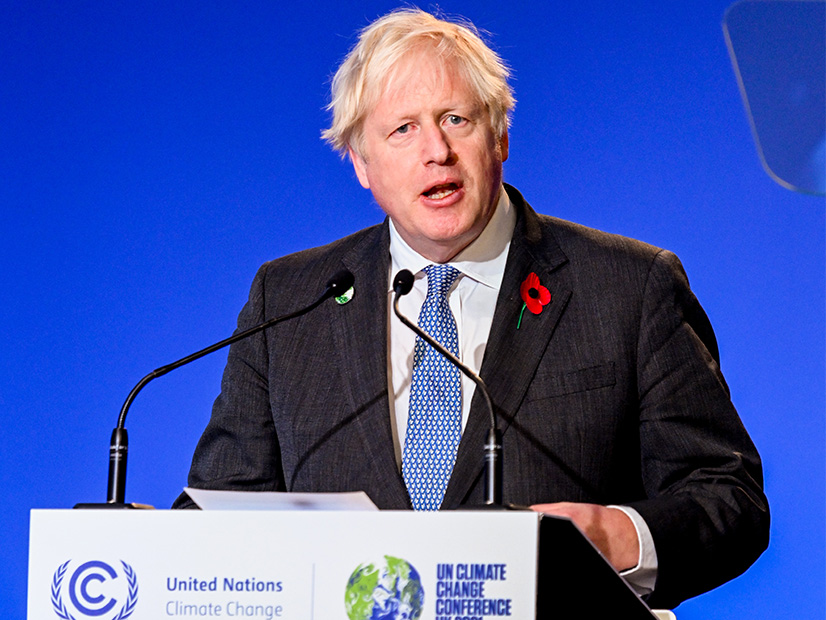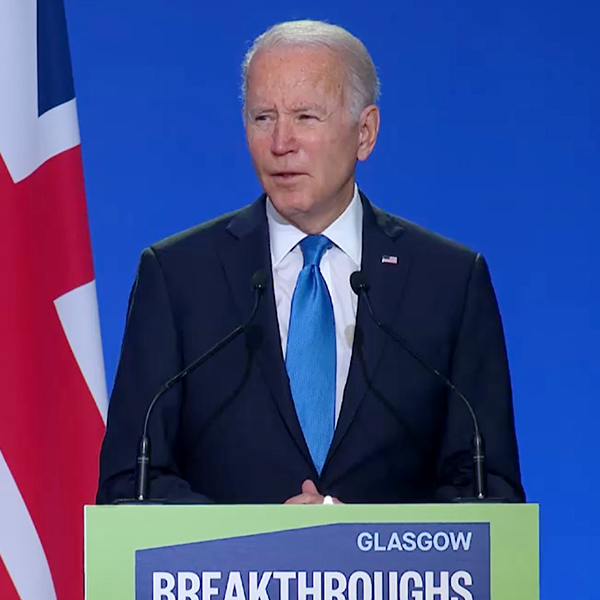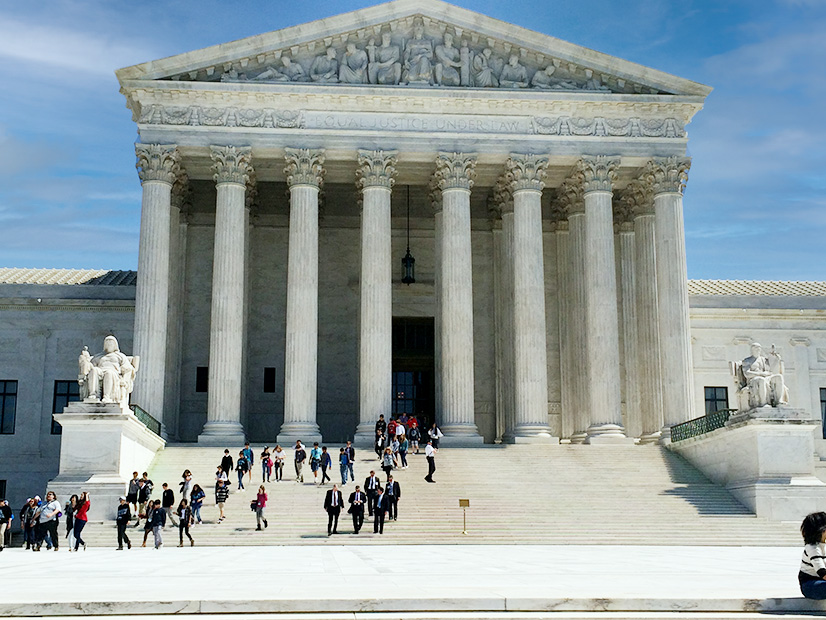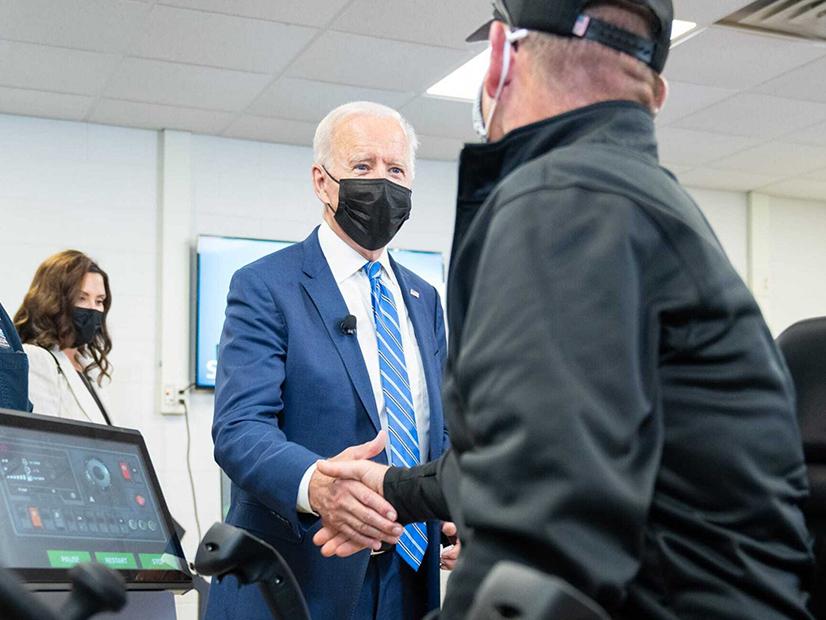Federal Policy
CongressDepartment of EnergyLoan Programs Office (LPO)Department of TransportationEnvironmental Protection AgencyFederal Energy Regulatory CommissionGeneral Services Administration (GSA)Interior DepartmentBureau of Land ManagementBureau of Ocean Energy ManagementNuclear Regulatory CommissionTreasury DepartmentWhite House
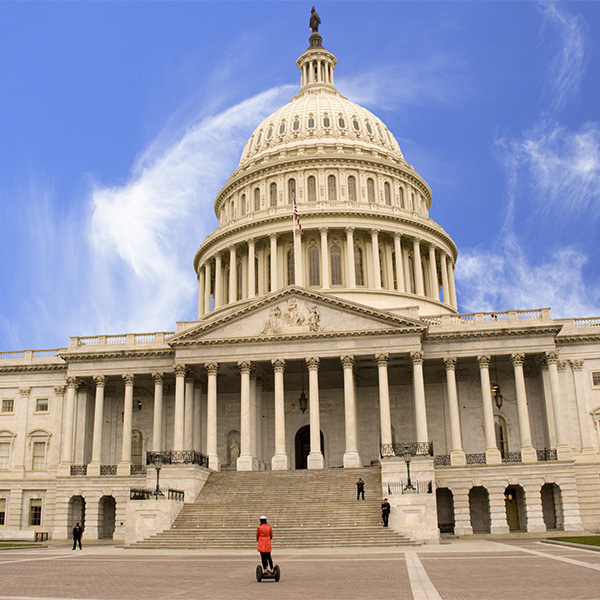
David Maiolo, CC BY-SA-3.0, via Wikimedia
The House of Representatives’ passage of the bipartisan Infrastructure Investment and Jobs Act quickly set off a chorus of praise from clean energy groups.
President Biden, Canadian Prime Minister Justin Trudeau and EU President Ursula von der Leyen pledged they would lead a global methane reduction effort.
The Climate Investment Funds’ plan to leverage its assets to issue bonds in the capital markets could lead to $50 billion in investments over 10 years.
U.K. Prime Minister Boris Johnson called on world leaders at the United Nations Climate Conference to phase out gas-powered cars and coal-fired power plants.
Countries that participate in the Glasgow Breakthrough Agenda will focus on breakthroughs in five sectors that cover half of global greenhouse emissions.
The DOE wants to cut the cost of lithium-ion batteries, recharge EVs with a 300-mile range in 15 minutes and boost battery recycling — all in the next decade.
New York City is set to replace dirty power plants with clean energy from up the Hudson and in the ocean, with an estimated $26 billion in projects.
The Supreme Court agreed to consider challenges to EPA’s authority to regulate greenhouse gas emissions under the Section 111(d) of the Clean Air Act.
President Biden rolled out a new framework for a whittled-down budget reconciliation package that includes $555 billion in clean energy funding.
Big government programs to fight climate change are not the answer, say conservative thinkers with plenty of skepticism about top-down regulations.
Want more? Advanced Search

